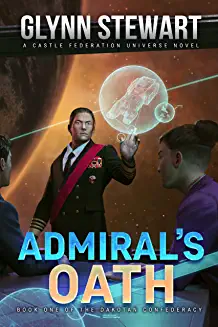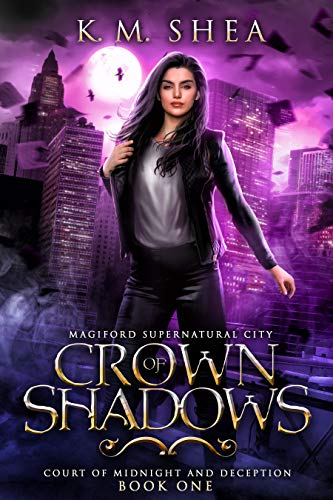Recent Reading: For Days When You Can’t Even
So, since I was busy, distracted, tired, and upset over the past week, I read several books, which I specifically selected for the following qualities:
New to meNot too demandingI specifically wanted novels that would be somewhat distracting, but wouldn’t require a lot of attention or be too emotionally engaging. I have other stuff in my life that is taking up plenty of emotional energy; I don’t have attention to spare for a really great novel. Therefore, I was looking for familiar-ish settings, straightforward writing, straightforward plotting, happy endings — stuff like that. I don’t know whether any of you ever specifically pick up a book in the hope that it will be okay but not actually great, but yep, that’s sometimes a thing for me.
I’ve read two books in the past week that fit the bill, and here they are:

Basic conclusions: This book was just about right for what I wanted: straightforward military SF. One side lost a war because of their opponent’s unexpected strike against their FTL communications. The titular admiral, James Tecumseh, is determined to cope with the terrible resulting situation without allowing himself to turn into, or be drafted into the position of, military dictator. It’s interesting to me that his society, the Confederation, was absolutely in the bad guy role in the war. They intended to conquer a much smaller polity for no reason other than a sense of, essentially, manifest destiny. Totally serves them right to get whapped for that. But Tecumseh himself is definitely a good guy. He’s a competent admiral who defeats various opponents who think it would be great to make themselves emperors. The book is not really self-contained. The ending serves to set up the second book, which isn’t out yet. But there’s no question about the fundamental direction the next book will take. This story is indeed utilizing very straightforward plotting.
Things that might ordinarily have lead to a DNF for this story:
This is very much a plot-centered story. That was fine with me — sometimes it is, and this was one of those times. The characters are basically pretty flat. Good guys, bad guys, not much in between; this basically worked for me at the moment.
Biggest flaw: writing quality: On a scale where 1 = unreadably bad, 5 = adequate, and 10 = superlative, I’d rate this book at about a four. There are lots of somewhat awkward sentences. For example, this:
“Active scanner beams should have picked up the cruisers at at least five million kilometers instead of the three million the thermal passives detected them at.” He shrugged.
“at at,” really? How much trouble would it have been to re-phrase that? Especially since the whole sentence ends with yet another “at.” This is an author who really does not seem to have much of a feel for the language he uses.
Also, “warned” and other such words are sometimes used to directly replace “said,” even though comma usage should not be the same. Paragraphing is sometimes odd, with multiple paragraph breaks for no reason even when the same person is speaking. Sometimes every sentence gets its own paragraph, with no reason to do that, resulting not in confusion, but in an unnecessary choppy feel.
Overall, I found the writing quality distractingly poor at times. I mean, I sure noticed the at at sentence. If you pause to roll your eyes at various sentences, that’s not great for the reading experience.
On the other hand, I read the whole book, I did enjoy the story, and I would have read the next book in the series if it was already out. I like the setup for the next book and I’m definitely in the mood for good guys who handle every possible challenge. This series is clearly going to continue on as it’s started, only with a tougher would-be emperor who will need to be defeated. I’m on board for that.
Second:

I haven’t read a lot of UF or paranormals over the past couple of years. I guess I read too many and got tired of them. But I suspected this would be just about what I wanted — light, not too emotionally engaging, fairly familiar setting and background, fairly predictable plotting. All of that turned out to be true, with the plus that the romance is not as centered as I expected. The reader can see the romance coming, but it’s slow-burn enough that it’s not actually on the page even by the end of the first book.
Again, the writing is not fantastic. I guess I’d rate it at about a 4.5 on my scale above. Sometimes sentences are noticeably awkward, but not as often as in the book above. The style is livelier and more fun. The dialogue is not as witty as you’ll see in, I don’t know, Ilona Andrews’ books. That may not be a fair comparison. It’s good enough most of the time.
I really like the emphasis on the fae animals; that plot element is handled really well.
Leila is quite smart in a lot of other ways. She’s politically astute enough to manage in the fae court and I enjoyed watching her outmaneuver her enemies. On the other hand, Leila is also eye-rollingly stupid about certain plot elements and various characters. As stupid as Jared in the Black Jewels novel? you may ask. Yes, nearly! That isn’t the case for Admiral Tecumseh, so that’s a plus there.
On the other hand, despite the flaws in this paranormal series, the second and third books are out now, and yes, I picked them up. In fact, I’m halfway through the second book. Obviously I’m finding it readable.
If I were rating these books out of five stars — hmm. I’d say two and a half for The Admiral’s Oath; three for Crown of Shadows. I’m not sure if any of you are ever interested in reading books that are just readable rather than really good, but if so, here you go, one SF and one paranormal fantasy. Personally, with books like these, I’m inclined to go on with the series I’ve started, but I’m not inclined to take a look at anything else by the (prolific) authors. That, I guess, is the difference between “readable” and “really good” for me. I do like both these books enough to read them, but it’s very different from, say, Martha Wells or Andrea K Host. For both of those authors, I read one book, then another book, and then bought everything in their respective backlists and gave them each an individual folder on my Kindle. No such impulse here.
I’m curious how much it would slow each author down to get someone to do a critical read and/or just smooth out the awkward prose. I am entirely aware that publishing books very fast is an excellent strategy for self-publishing authors and I believe both these authors are following that strategy. Also, looking at the Amazon rankings for their books, that’s clearly working for them both. Even so, I wonder how much better these books could be if the authors went to the trouble of just a little extra editing.
Please Feel Free to Share:






The post Recent Reading: For Days When You Can’t Even appeared first on Rachel Neumeier.



